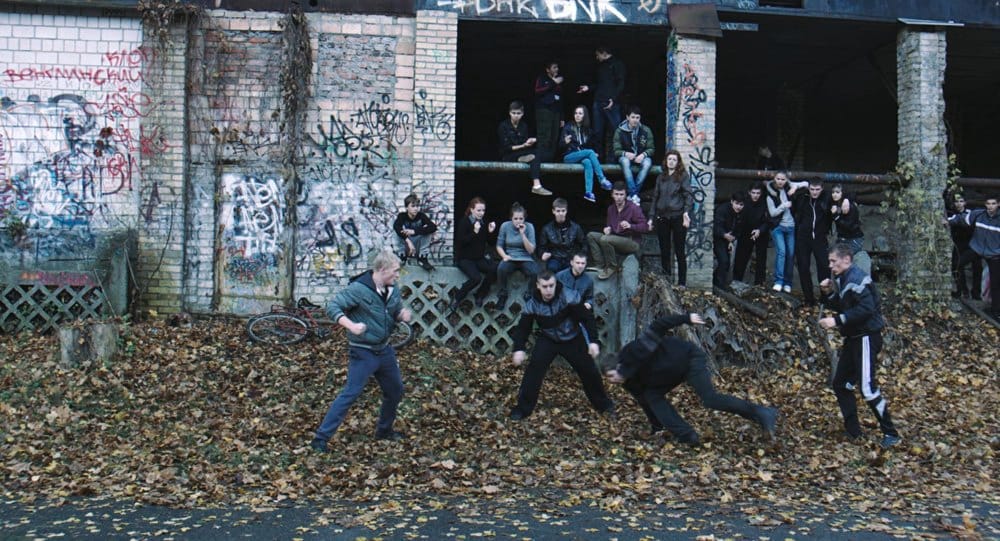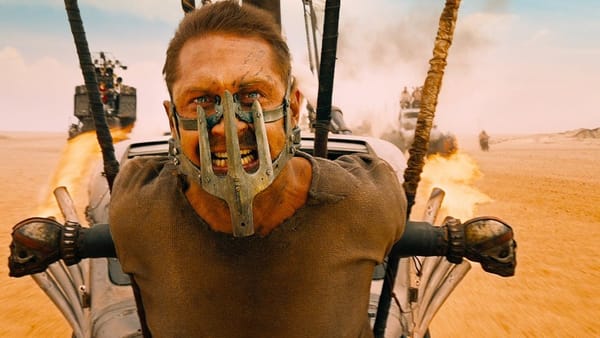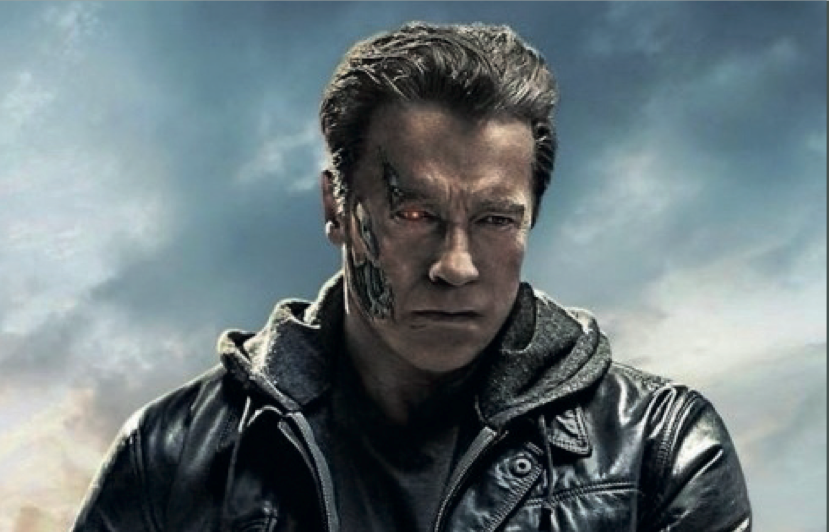Tribal warfare on the big screen
Fred Fyles is hooked by a brutal piece of cinema from Ukraine

It’s difficult to describe the Ukrainian film The Tribe in a way that doesn’t make it sound like an ‘Elevator Pitch’, one of those nebulous phrases taught in business schools that’s supposed to ensure a product’s marketability. A film set in a school for deaf children, The Tribe is conducted entirely through sign language, with no spoken dialogue, no subtitles, and no explanation.
High concept, it may be, but The Tribe is far from marketable. It is quite possibly one of the most brutal, gruelling films to come out this year. It also just may be one of the best.
We begin the film by being introduced to Serhiy (Hryhoriy Fesenko), arriving at a boarding school for the deaf under a blanket of foul weather that never really lifts, smothering the film in a uniquely Eastern European bleakness. As time goes on, Serhiy is drawn deeper and deeper into the underground criminal racket that the older students, aided by their woodworking teacher, have organised; the acts depicted in full gruesome detail on screen include prostitution, torture, murder, and possibly human trafficking – although the nature of the production means that nothing is sure.
The director Myroslav Slaboshpytskiy throws us into an unforgiving world of misunderstanding and misinterpretation, leaving us to make our own decisions about who is right or wrong. As the plot becomes more complex, and Serhiy becomes infatuated with Anna (Yana Novikova), the characters’ actions become more and more difficult to read, trapped as we are behind a screen of muteness.
Throughout, Slaboshpytskiy keeps the camera moving, filming the scenes in a series of long shots that require nerves of steel to sit through, including the most harrowingly graphic abortion scene I’ve witnessed since Cristian Mungiu’s 4 Months, 3 Weeks and 2 Days. The fact that such shots were pulled off is testament to both the skill of Slaboshpytskiy, and the discerning eye with which he assembled the cast – mainly amateur deaf actors. They need no acting classes, no drama degrees; they’ve spent their lives using facial expression and movements to get their point across, and the physicality of acting is like second nature to them.
There are some obvious reference points within The Tribe, chief among them being William Golding’s 1954 novel Lord of the Flies, which centres around a group of schoolchildren becoming feral, revealing the darkness in man’s heart. But while the experiences of Jack, Ralph, and Piggy were written to underline the fact that mankind is consistently evil, The Tribe’s energy comes from the fact that the mainstream audience is consistently alienated.
Taking on the experience of a lifetime of being The Other, the deaf children have turned the tables, and are now holding us at arm’s length; our misunderstanding become a locus of resistance through which their anger is expressed. When viewed in such a way, the plot, which on paper can sound ludicrous, begins to make sense: vilified by the community at large, and shipped off to an enclosed space in which they won’t upset our idea of ‘normality’, the children are using their deafness as a weapon, resisting any form of polite society, and forging a world in their own image.
That being said, there are moments where the plot points feel somewhat heavy handed, and the facade of realism the film holds up begins to slip: where are the adults at the school? Surely, when ransacking someone’s apartment, there must be some non-deaf people in the vicinity who can hear what’s going on? But such actions only seem to reinforce the strange, dreamlike nature of the film, oppressive in its silence.
I am sure, furthermore, that there will be some who are disgusted by the frank, explicit nature of the film, particularly the abortion scene. While I am sure there is a case for this criticism, all I will say is this: The Tribe is not meant to be an enjoyable film.
Without any idea of when or where the film is set – some clues give things away: the cyrillic alphabet; the presence of a MacBook – the audience is disengaged from temporal and spatial reality, cast adrift on a wave of alienation. The removal of any spoken language only deepens this experience, with the lack of any form of musical accompaniment accentuating the silent lives of the children. There are occasions when we do see people talking, but they are hidden behind thick glass, tantalisingly out of reach, making the audience long for a point of contact that will never be made.
But the soundtrack to this film is not one of silence. The void that has been created by the loss of language is filled with a vocabulary of inertia: feet squeaking on a newly polished floor; bottles being cracked sickeningly over human skulls; the dull thump of flesh upon flesh. With our senses amplified, we are able to take in more than ever before, and this intoxication of strange sounds is awesomely gruesome.
A remarkably unique piece of cinema, which defies the conventions of our idea of the medium, The Tribe is a complete triumph. Its sheer power is stunning, crushing the audience into submission, and seemingly vacuuming out all the air in the room. I haven’t been able to stop thinking about it since the first viewing, and I am certain that it is a film that will reward revisits.
Leaving the cinema, thrust into the hustle and bustle of modern London, I am confronted by a cacophony of new sounds, as thoughts of alienation and belonging, violence and brutality, love and life swirl around my head.










